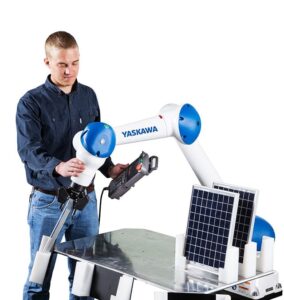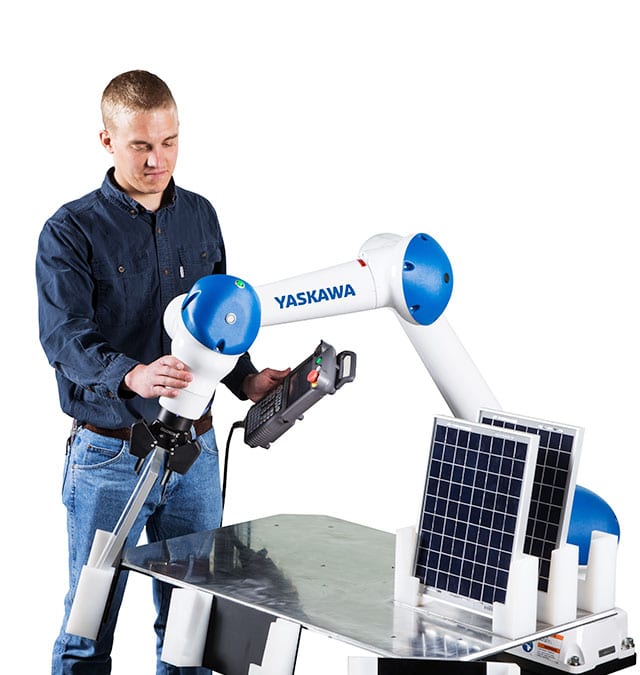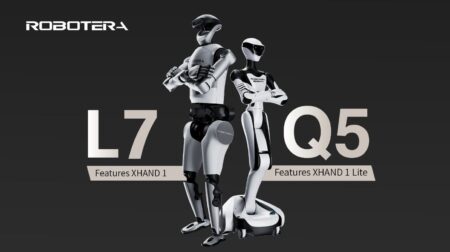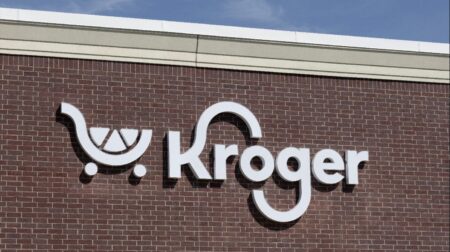Yaskawa has expanded its portfolio of collaborative robots with the launch of the Motoman HC20DT IP67 model.
The new cobot has a maximum handling weight of 20kg and covers a working range of 1,700mm, making it suitable for physically demanding tasks such as palletising of large cardboard boxes, crates and other stackable goods.
With its ability to lift heavy loads, the Motoman HC20DT IP67 is designed to improve workplace ergonomics and release human operators for cognitively more demanding activities.
Dust- and waterproof, the cobot can also operate in harsh environments such as machine tool loading, where it can come into contact with cooling emulsions.
Motoman HC20DT IP67’s high lifting capacity also permits the simultaneous handling of several heavy workpieces with a double gripper standard in CNC automation.

Furthermore, easy-to-clean surfaces and the use of food-grade lubricating grease make it suitable for the food and chemical industries.
According to Yaskawa, safety in direct contact with the operator is ensured by six integrated torque sensors that enable flexible interaction between the robot and its environment.
The robot arm is designed to preclude the risk of crushing, such as fingers.
User-friendly operation is also enabled by the six integrated torque sensors and by the monitoring and evaluation of external forces, with the robot arm able to be guided and programmed directly by hand.
Move, Teach and Tool Utility buttons mounted on the flange are used for programming the Motoman HC20DT IP67, which can also be programmed and operated in conjunction with the Smart Pendant programmer or a conventional hand-held programmer.
With regard to German and European safety standards, the Motoman HC20DT IP67 can be employed – like the smaller HC10DT – with power and force limitation according to technical specification ISO TS 15066.
Depending on the risk assessment, the cobot requires no additional protective measures such as a safety enclosure.
In order to further increase its performance, the cobot can also be operated in hybrid mode by connecting external safety technology, such as a laser scanner.
According to Yaskawa, the cobot then alternates between collaborating, speed-reduced and full speed, achieving a maximum cycle time regardless of the distance to the employee.
In addition to the HC20DT IP67, three further cobot models are currently available from Yaskawa, the HC10, HC10DT, HC10DT IP67.
The range will soon include the HC10DTF model for the food sector.
Read more from Robotics & Innovation
https://www.roboticsandautomationmagazine.co.uk/mitsubishi-electric-launches-new-cobot-series/









